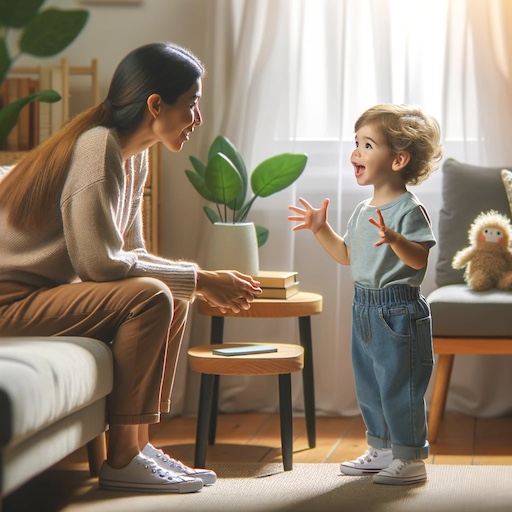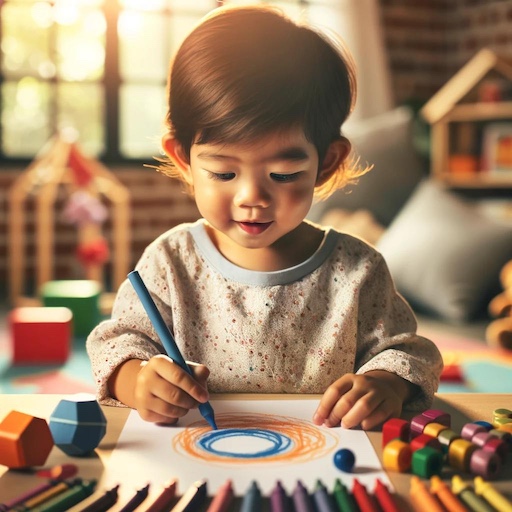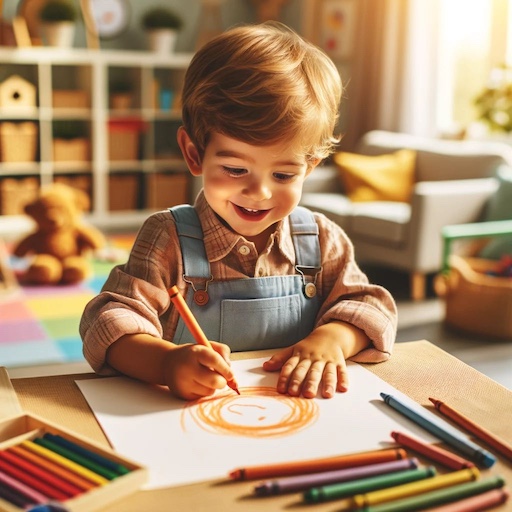Important Milestones For Your Child By Three Years
Introduction
Navigating through the world of a 3-year-old is an adventure filled with curiosity, learning, and immense growth. As they step into this vibrant phase, children exhibit a remarkable array of developmental milestones that encapsulate their expanding social, emotional, cognitive, and physical capabilities. This crucial period lays the groundwork for their understanding of the world and themselves. The CDC's Milestone Tracker app serves as a comprehensive guide for parents to monitor, support, and celebrate these significant achievements. It's a journey of discovery, challenges, and joy, providing invaluable insights into your child's unique developmental path.

Key Milestones for 3-Year-Old Children
By three years, children achieve important milestones that reflect their development in social interaction, emotional regulation, language and communication, cognitive abilities, and physical skills:
Social/Emotional Milestones
- Begins to calm down within minutes of a caregiver leaving, indicating growing emotional resilience.
- Notices and seeks to join in play with other children, showing an interest in social interactions.
Language/Communication Milestones
- Engages in conversations with at least two back-and-forth exchanges, demonstrating improved communicative skills.
- Begins to ask "who," "what," "where," or "why" questions, illustrating burgeoning curiosity about their environment.
- Correctly names actions happening in a picture or book when asked, like “running” or “eating.”
- Can say their first name when asked and is mostly understandable to others.
Cognitive Milestones
- Draws a circle when shown how, indicating developing fine motor and cognitive skills.
- Avoids touching hot objects like a stove when warned, showing an understanding of safety instructions.
Movement/Physical Development Milestones
- Strings large beads or macaroni, which refines fine motor skills.
- Starts to put on some clothes by themselves, such as loose pants or an open jacket, displaying growing self-sufficiency.
- Uses a fork, showing improvements in dexterity and self-feeding skills.

Diving Deeper: Unveiling Your 3-Year-Old's Development
Social/Emotional Growth
Three-year-olds demonstrate emotional maturity by adjusting to separations more swiftly, such as calming down shortly after a caregiver's departure. Their increased interaction with peers, including joining in play, marks a significant advance in social skills and the desire for collaborative activities.
Language and Communication Evolution
Engaging in short conversations and asking questions about their environment, three-year-olds show a leap in language skills. Their ability to follow stories, describe actions in images, and use personal pronouns reflects a deeper understanding of language as a tool for expression and inquiry.
Cognitive Development Insights
By drawing shapes and avoiding hot objects on command, children at this age exhibit an understanding of more complex instructions and safety awareness. Their interaction with toys becomes more sophisticated, indicating emerging problem-solving skills and cognitive development.
Advancements in Movement and Physical Abilities
Three-year-olds display fine motor skills through activities like stringing beads and using utensils with greater precision. Their ability to dress with minimal help and engage in more controlled physical activities like using a fork or jumping off the ground with both feet showcases significant milestones in physical development and independence.
When You Have Concerns About Your Child's Development
While tracking developmental milestones provides valuable insights into your baby's growth, it's crucial to remember that these milestones are not set in stone. Most children (about 75%) reach these milestones by a certain age, but many healthy and happy babies develop at their own unique pace. Some may achieve certain skills more quickly, while others take a bit longer, and that's perfectly normal.
As the person who knows your baby best, your observations are invaluable. When speaking with your child’s doctor, consider discussing:
- Activities and routines you and your baby enjoy together.
- Your baby's favorite ways to play and interact.
- Any behaviors or skills that seem unusual or concerning to you.
- If your baby seems to have lost any skills they once had.
- Any special healthcare needs your baby might have, including if they were born prematurely.
It’s always better to address any concerns early. If you're worried about your baby's development or if they're not meeting the milestones as expected, don't hesitate to talk to your pediatrician. They can provide guidance, support, and, if necessary, further evaluation to ensure your baby gets the best start possible. Remember, you're doing a great job, and seeking advice or clarification is part of ensuring the well-being of your precious little one.
Empowering Your 3-Year-Old’s Growth: Essential Parenting Tips
At three years old, children are exploring the world with greater independence, curiosity, and engagement. Here are some CDC-recommended strategies to support your child’s development at this exciting stage:
- Encourage Problem-Solving: Foster your child's problem-solving skills by guiding them to solve their own problems with supportive questions and suggestions. Help them understand the problem and think through potential solutions together.
- Support Emotional Development: Talk about emotions with your child and provide them with the vocabulary to express how they’re feeling. Teach them healthy ways to manage strong emotions, such as taking deep breaths or hugging a favorite toy.
- Establish Simple Rules: Set clear and simple rules for behavior. Use positive reinforcement to acknowledge good behavior and gently redirect or show what to do instead when rules are broken. Praise and recognize your child when they follow the rules to reinforce positive behavior.
- Encourage Social Play: Arrange playdates or situations where your child can play with others. While children at this age are beginning to interact more with peers, they still need guidance on sharing, taking turns, and resolving conflicts.
- Promote Language Skills: Engage in conversations with your child, encourage them to ask questions, and provide answers that expand their knowledge and vocabulary. Reading together, singing songs, and telling stories are great ways to enhance language development.
- Stimulate Cognitive Growth: Provide toys and activities that challenge your child’s thinking and problem-solving abilities. Puzzles, simple board games, and imaginative play materials can stimulate cognitive development and creativity.
- Support Physical Activity: Encourage active play to help develop your child's physical skills. Activities like running, jumping, climbing, and playing with balls can improve their strength, coordination, and motor skills.
Every child develops at their own pace, and the journey through the early years is as unique as each child. Stay attuned to your child's needs, interests, and abilities, and provide support and encouragement to explore, learn, and grow. For more tips and resources on supporting your child’s development, visit the CDC’s website and consider using the Milestone Tracker app.
Summary and Resources
Reaching three years of age is a significant milestone in a child's development, characterized by remarkable growth in social interaction, communication abilities, cognitive skills, and physical coordination. Children at this stage become more expressive, curious, and eager to explore the world around them.
Supporting our children through this phase involves engaging in meaningful conversations, fostering emotional intelligence, encouraging creative play, and guiding them through their social and physical world. It’s crucial to provide a supportive, loving environment that encourages exploration and learning, while also setting boundaries that help them feel secure.
The CDC's Milestone Tracker app offers an excellent resource for parents and caregivers to track developmental progress, gain access to personalized tips, and discover activities tailored to support their child’s growth. This tool, along with a wealth of information available on the CDC website, can help ensure that every child receives the nurturing support needed to thrive at this exciting stage of development and beyond.
For further guidance and resources on nurturing your three-year-old’s development, visit the CDC's Milestone Tracker page and consider downloading the app to keep track of their milestones.
